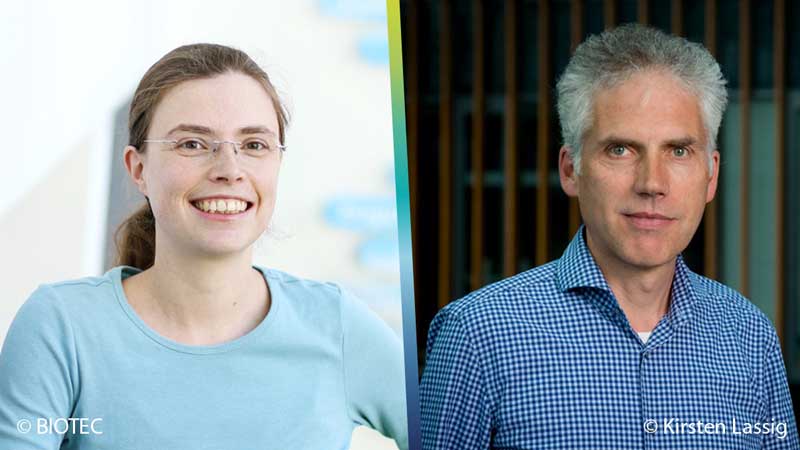In April 2022, Dr. Elisabeth Fischer-Friedrich and Prof. Christian Dahmann, both scientists and research group leaders in biophysics at TU Dresden, got their joint DFG Grant accepted with a funding volume of ~487,000 € that is based on data from research funded by their previous PoL Starting Grant. The aim of the PoL Starting Grants was to initiate new collaborations.
During development, folding of epithelial cell layers is a major element for the emergence of proper organ shape and function. For epithelial folding to happen, epithelial cells need to orchestrate intracellular force generation and cellular material properties in the fold region. One structure which could play a pivotal role for the adjustment of material properties during this folding is a thin sheet of interwoven extracellular biopolymers (so-called extracellular matrix), which is attached to the epithelial cell layer at the bottom. This sheet is called basement membrane. In this interdisciplinary collaboration, the Fischer-Friedrich group and the Dahmann lab jointly aim to elucidate the role of basement membrane mechanics in the morphogenesis of epithelia. As a model system, the researchers will use the wing disc of the fruit fly Drosophila melanogaster.
Dr. Elisabeth Fischer-Friedrich is a group leader for Mechanics of Active Biomaterials at the Cluster of Excellence Physics of Life (PoL) at TU Dresden. Her research group combines biological experiments at the cellular and tissue level with theoretical physics to uncover principles by which active molecular units lead to dynamic intracellular force generation and cellular shape changes. For example, she showed that a cellular transformation which is linked to metastasis of carcinoma leads also to a change in the stiffness of cancer cells.
Prof. Christian Dahmann holds the Chair of Systems Biology and Genetics at TU Dresden and leads the research group “Signals and mechanics in epithelial morphogenesis”. The Dahmann lab investigates the mechanisms that cells use to form functional tissues during embryonic development. They apply a combination of genetic, cell biological, biophysical and microscopy techniques to their research. The main focus is the quantitative analysis of tissue differentiation and morphogenesis during the development of the fruit fly Drosophila.
This DFG Grant will support the Dahmann lab and the Fischer-Friedrich lab with personnel costs, consumables and travel funds for three years. "The great thing about the grant is that each group now receives funding for a PhD student for three years to investigate the connection between morphogenesis and mechanical properties of epithelia in the fruit fly model system. This enables us to deepen our collaborative efforts between the Cluster of Excellence Physics of Life and the Faculty of Biology," Dr. Fischer-Friedrich points out.
